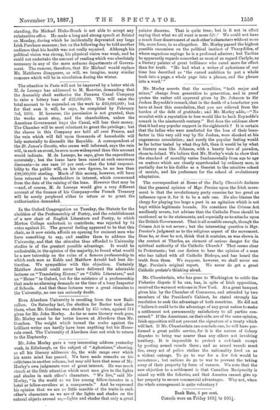Mr. Morley asserts that the moralities, "both major and minor,"
change from generation to generation, and in proof quotes the rather odd approval given by Dr. Johnson to Sir Joshua Reynolds's remark, that in the death of a benefactor you have at least this consolation, that you are relieved from the burden of the debt of gratitude ; and Mr. Morley adds,—" No moralist with a reputation to lose would like to back Reynolds's remark in the nineteenth century." But does the evidence show that it had any popular support in the eighteenth P It is certain that the ladies who were comforted for the loss of their bene- factor in this very odd way by Sir Joshua, were shocked at his ungenerous consolation ; and surely the popular feeling would. be far better tested by what they felt, than it would. be by what a literary man like Johnson, with a hearty love of paradox, chose to defend. We believe that Mr. Morley's wish to show that the standard of morality varies fundamentally from age to age on matters which are clearly apprehended by ordinary men, is partially due to his dislike as a theorist to the intuitive school of morals, and his preference for the school of evolutionary adaptation.























































 Previous page
Previous page